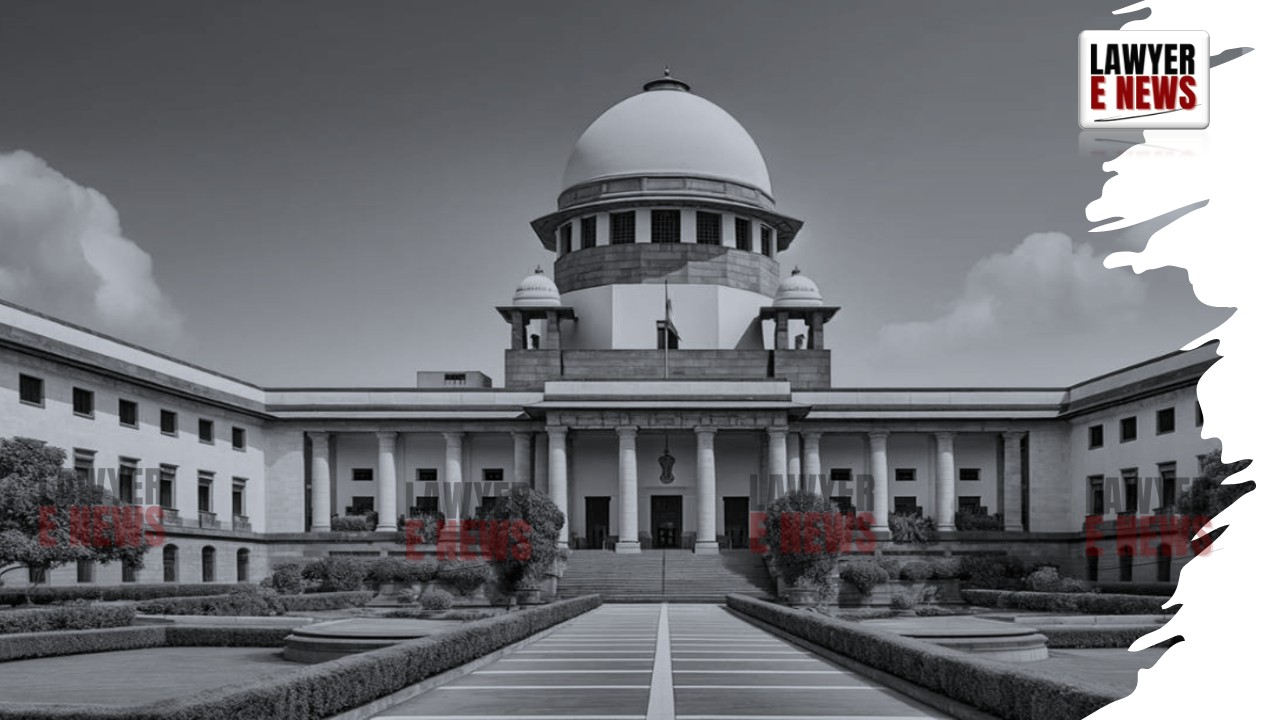-
by Admin
17 February 2026 4:27 AM



“The Additional Collector had exercised the power under Section 165(6)(ii) properly and within his jurisdiction… Revisional powers were exercised on a flawed understanding of the Code” – In a decisive judgment that could redefine how State authorities handle tribal land transactions, the Supreme Court of India dismissed an appeal filed by the State of Madhya Pradesh, while upholding a land sale executed by tribal landowners to a private buyer with prior approval from the Additional Collector. The apex court slammed the government for misusing revisional powers and held that the entire exercise of suo motu interference was based on a flawed and erroneous interpretation of the law.
Delivering the verdict in The State of Madhya Pradesh vs. Dinesh Kumar & Ors. (Civil Appeal @ SLP (C) No. 10111 of 2024), a bench of Justices Sudhanshu Dhulia and K. Vinod Chandran ruled, “We find absolutely no reason to interfere with the order of the learned Single Judge and therefore, the appeal is dismissed.”
The Court found that the land was not located in a government-notified Scheduled Area and thus did not fall under the absolute prohibition of Section 165(6)(i) of the MP Land Revenue Code, 1959, and that the sale, enabled under Section 165(6)(ii), had received valid permission in writing.
“Don’t Call the Collector a Usurper When You Empowered Him Yourself”: SC Rejects State's Claim of Jurisdictional Illegality
The Madhya Pradesh government’s main contention was that the Additional Collector had no jurisdiction to grant permission for the tribal land sale. But the Supreme Court shredded this argument by pointing to the very government order that conferred such powers to the officer months before the sale.
“It is very pertinent that when the permission was granted… the work allocation order was in force… The State, hence, cannot contend for a minute that the Additional Collector was not competent,” the Court declared in a stinging rebuke to the State’s stand.
The bench pointed out that the Collector’s own order dated 19.05.2017 specifically listed the concerned Additional Collector as being empowered to act under the Land Revenue Code. “If you authorized him by name, you cannot later disown that authority,” the Court essentially told the State.
“This Is No Sham – Sale Price Was Above Market Rate, Buyers Bound to Use Land Only for Agriculture”: SC Finds Transaction Bona Fide and Fully Legal
In a clear validation of the transaction's genuineness, the Court noted that the tribal sellers had moved an application stating their intention to sell part of their land for marriages and debt clearance while retaining sufficient holdings elsewhere. The Additional Collector had evaluated a 16-point report from the Patwari, considered the local circumstances, and mandated a 10-year bar on land use conversion in line with Section 165(6-ee).
The apex court noted, “The consideration paid was far more than the market value… there was no evidence to suggest that the transaction was spurious, fictitious or benami.”
Responding to the State’s invocation of Section 165(6-c), the Court held that even though that provision technically applies only to other subsections, “we would still consider the plea… and find that all due checks were carried out.” It added that the land was not in a Scheduled Area, and the safeguards regarding purpose of use, adequacy of consideration, and genuineness were fulfilled.
“180 Days Is the Limit – Suo Motu Powers Cannot Be Used Forever”: SC Cautions Against Endless Revision While ruling primarily on the merits of the permission, the Court also commented on the blatant delay in exercise of revisional powers. The Commissioner had acted nearly three years after the matter was first referred, well beyond the 180-day upper limit laid down by the Full Bench of the Madhya Pradesh High Court in Ranveer Singh v. State of M.P.
The Court remarked, “The revisional order having been passed after almost three years… long after the limitation period expired,” but clarified that even without touching the limitation aspect, it found the permission legally unassailable.
“You Can’t Cry Foul After Issuing the Permit”: SC Warns State Against Retroactive Overreach in Tribal Land Sales
The verdict sends a strong message to State governments attempting to retroactively undo legitimate land transfers by tribal communities. The Supreme Court said that the government's own enabling provisions, internal documentation, and due process checks cannot be ignored or undermined simply because the administration later wants to reverse the sale.
“The exercise of the revisional power under Section 50 of the Code of 1959 was erroneous,” the Court held, concluding that both the procedure and substance of the land sale were in order.
Date of Decision: April 8, 2025
